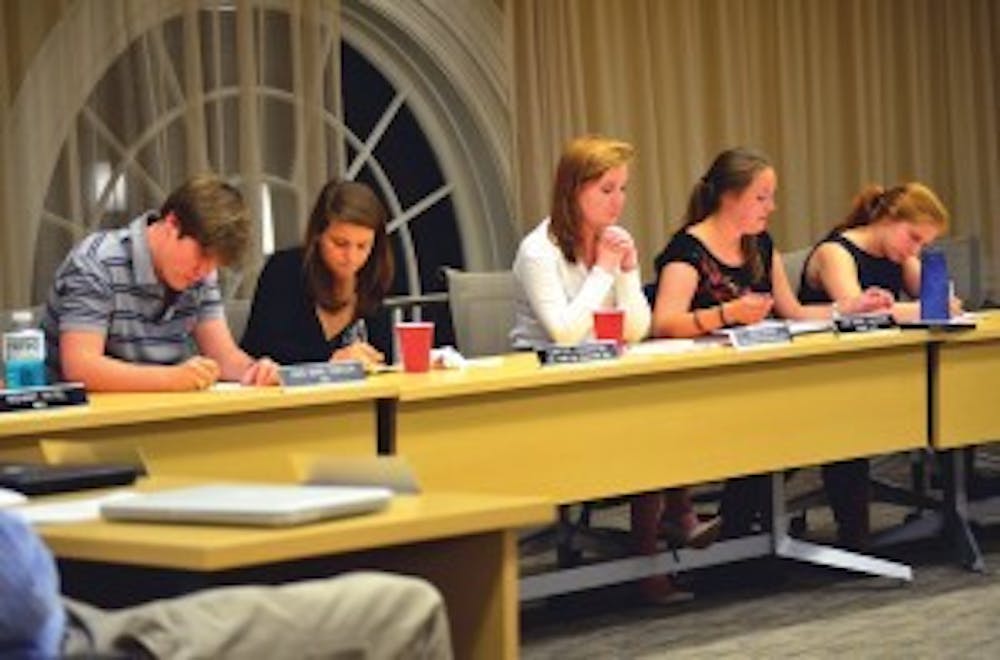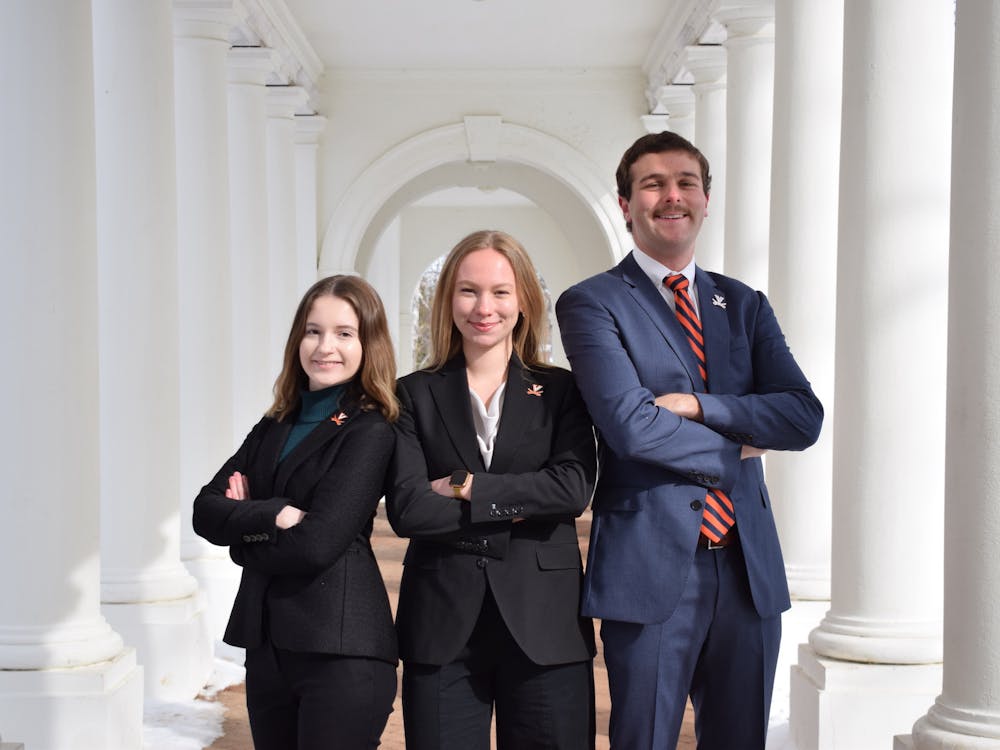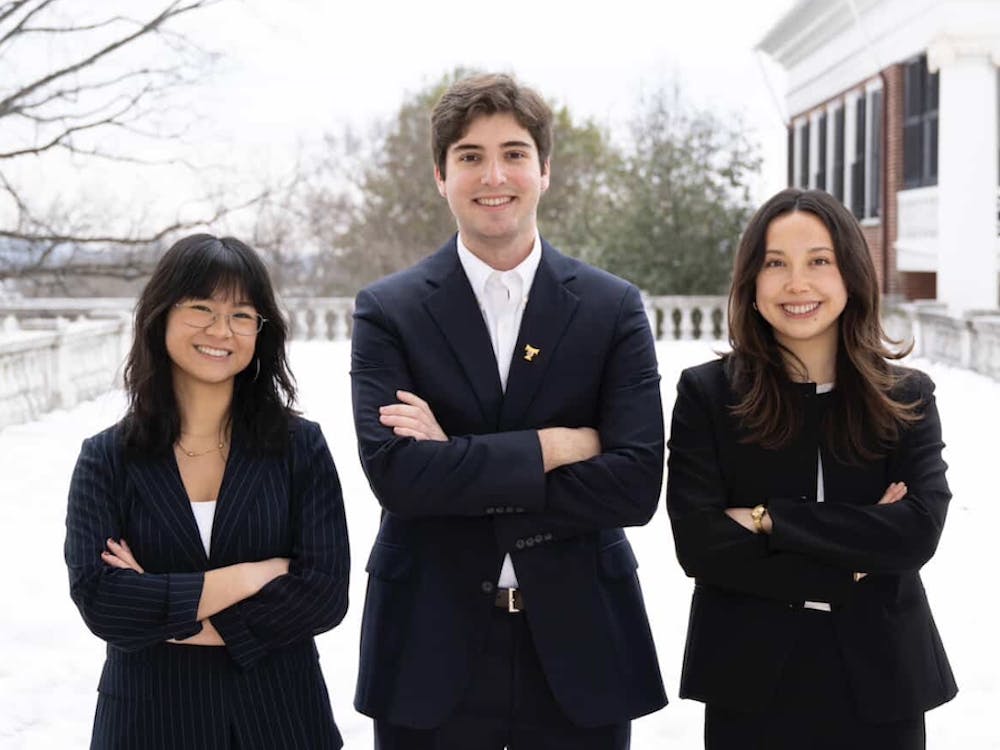Two Honor Committee representatives advanced a proposal yesterday evening which would create a collective trial process for "dishonorable" behavior involving the Committee, the University Judiciary Committee and the Sexual Assault Board.
Batten Rep. Michael Karlik and School of Continuing & Professional Studies Rep. Becca Field suggested a revision to the University's judiciary bodies' definition of "honor" which would combine the processes and members from all three committees when a report of dishonorable behavior goes to trial.
Karlik and Field said the current honor system's jurisdiction was too limited.
"For an institution that is supposed to promote trust and integrity, the Honor System's jurisdiction is surprisingly narrow," according to their report.
Karlik said many students believe the honor system is "all-encompassing," but it only addresses lying, cheating and stealing.
"The question that comes up for students boils down to why the honor system doesn't do more," Karlik said. "Folks see students behaving badly, and they think, why doesn't the Honor Committee step in and do something?"
Commerce Rep. Carter Haughton, however, said some students already believe the Committee has "too much power," a problem the proposal could exacerbate.
Karlik and Field said to Committee members yesterday evening that standardless and irregular sanctions are administered by the University's three adjudicating bodies: the Committee, the UJC and the Sexual Assault Board.
Cheating on an assignment, for example, could lead to possible expulsion from the University, but "there is no similar mechanism to punish behaviors such as assault - which is arguably a larger threat to trust in the community than an academic infraction," according to the report. "A student who abuses his girlfriend or a group of students that bullies someone because of her sexual orientation are behaving in a way that lacks honor. However, the Honor System cannot dismiss those people from the community."
The proposal lists behaviors the hypothetical hybrid committee would consider "dishonorable," including using a fake ID, failing to pay rent, abuse of animals, bullying, selling and using illegal drugs, purchasing alcohol for underage people and assault.
Field said the Committee would aim to consider community conceptions of "dishonorable" behavior when composing its official list.
Commerce Rep. John Mark Digrazia said he thought the proposal would make existing procedures too complex.
"I think the existing structure and how we divide up these things [between the Committee and the UJC] makes sense logistically," Digrazia said.
If consensus emerges that the sanctions given by the Committee and the UJC are disproportionate and unfair, then the "UJC should work to change their sanctions," Digrazia said.
College Rep. Ellie Perkins said the hybrid trial process may discourage students from reporting sexual assault to the Sexual Assault Board. She said part of the reason the Sexual Assault Board exists is to prevent any discomfort an assault victim would feel presenting the act in front of a board of peers, such as the Committee or the UJC.
"If [sexual assault] became an honor process, people might feel pressured not to report the case," Perkins said.
Implementing the changes would require discussion with University Pres. Teresa A. Sullivan and the Board of Visitors, Karlik and Field said in their proposal. The Committee will discuss the proposal more next week.







